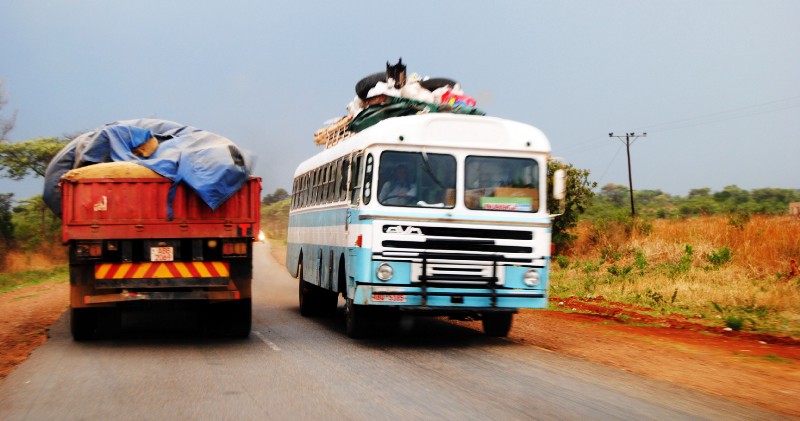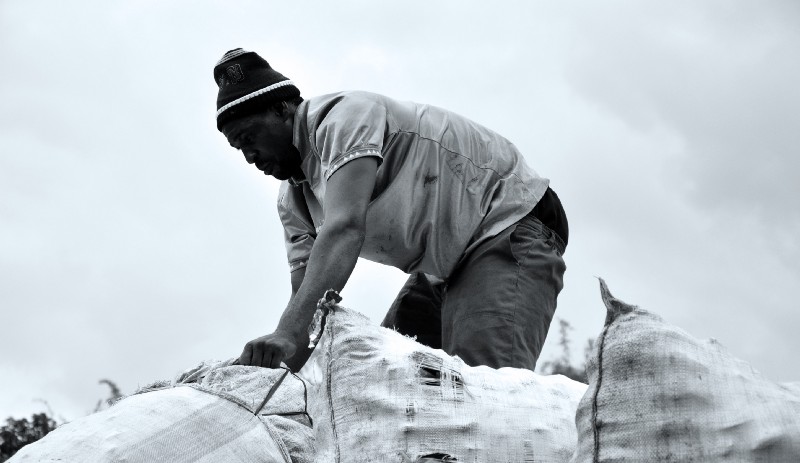 Cryptocurrencies and the underlying blockchain technology that makes them function have the potential to solve a lot of the major problems that plague the way financial services are delivered today. The possibility of much lower costs, decentralized control and true transparency promises to give ordinary people more power over their financial destinies than ever before. This has driven a huge amount of interest, development and investment into solutions that make use of blockchains to simplify and secure banking. So far, the bulk of that push has been concentrated in the more established markets of Europe, the Americas and Asia, with Africa lagging significantly behind the rest of the world when it comes to cryptocurrency adoption.
Cryptocurrencies and the underlying blockchain technology that makes them function have the potential to solve a lot of the major problems that plague the way financial services are delivered today. The possibility of much lower costs, decentralized control and true transparency promises to give ordinary people more power over their financial destinies than ever before. This has driven a huge amount of interest, development and investment into solutions that make use of blockchains to simplify and secure banking. So far, the bulk of that push has been concentrated in the more established markets of Europe, the Americas and Asia, with Africa lagging significantly behind the rest of the world when it comes to cryptocurrency adoption.
This neglect of African markets is a shame. The Mother Continent is by far the least developed, and while this might pose some challenges when planning for the deployment of advanced technology like completely virtual currencies, it also means that Africa still has the greatest scope for improvement. Newer tech has the potential to leapfrog older, less efficient systems when reaching previously unserved markets, and the advantages it brings can accelerate development beyond what would otherwise have been possible.
The Challenge
Let’s take a look at some of the challenges specific to Africa that can be solved by adopting blockchain-based currency schemes.
To begin with, Africa lags significantly far behind the rest of the world when it comes to access and ease of banking. As of 2014, only 32% of Africans had an account with a bank or some other formal financial institution. When we take a look at Africa’s population distribution, it’s easy to see why: the percentage urban population of Africa is a paltry 39%, compared to a global average of 54% and miles behind North America, the most urbanized continent with 81% of its population living in cities.
Rural areas generally lack the basic infrastructure of roads, telecoms and reliable electricity supply needed to support banks, and this is even worse in Africa where those services are often unreliable even in cities. As a result, a large proportion of the population simply don’t have a financial institution nearby to which they can entrust their money for safekeeping and saving and from which they can obtain credit.
Using the services of a bank also tends to come with a number of costs, with everything from simply opening an account to making a transaction, withdrawing or transferring funds and even checking an account’s balance coming with steep fees. This is a difficult blow to consumers in Africa, where 47% of the population falls below the poverty line and is unable to bear these costs. Businesses don’t fare any better — a large percentage of African entrepreneurs are part of the informal economy and so don’t have the revenue and expertise to navigate the financial industry.
Add an international border to the mix and the costs become astronomical. Businesses and individuals who need to remit money internationally are faced with steep fees of up to 15%, long wait periods and weak local currencies eroding their purchasing power on the international stage.
Further compounding the above problems is the instability caused by corruption and the volatility of local economies that it brings. Rampant bribery and dishonesty in officials and lack of good governance lead to massive inefficiency in African economies. African currencies are as a result highly volatile and unpredictable, further hurting Africa’s international competitiveness.

The Need
These demographic, infrastructural and institutional problems all contribute to Africa’s high unbanked population. Yet Africans are deeply and desperately in need of financial inclusion. The ability to store one’s money safely with a trusted entity and be able to access it anywhere and at any time is a convenience that’s easy to take for granted, but it is incredibly powerful. Without it, many Africans are forced to earn, save and transact solely in cash and other valuables. Physical cash is prone to theft and damage by catastrophe — a bank offers security from losing funds by such means. It also opens up the possibility of cashless payments, which are convenient for both the seller and the customer and make instant transactions across long distances possible.
The high demand for banking among Africans has driven a wave of adoption of the use of mobile money wallets, which are tied to a user’s cellphone number and work over their mobile carrier network. These offer most of the convenience of a bank while solving the problem of infrastructure by having merchants and service provider outlets serve as sign-in centres and cash points. This solves the problem of access, but mobile wallets are still plagued by transaction charges which are even higher than regular banks, and they are still subject to the whims of the local currency.
Despite its shortcomings, mobile money has seen a rate of uptake in Africa far outpacing the rest of the world, providing proof of the concept that previously untapped markets can be the quickest to adopt new technology. Cryptocurrencies have the potential to overtake even that because they provide a more comprehensive solution to the problems Africans face. First of all, they operate natively on the internet, meaning that similar to mobile money the only infrastructure that needs to be robustly built is telecommunications and electricity distribution, with physical locations and good roads to connect them becoming less critical to deployment. The low degree of internet penetration in Africa does present a challenge, but most of Africa’s governments as well as local and multinational investors are already working to solve this, and as a result internet adoption is growing fastest in Africa. The growth of cryptocurrencies will be able to scale at the same pace as these efforts.

Why the Blockchain?
The true advantage of cryptocurrencies over mobile money, netbanking services offered by banks and other web-based financial providers like Paypal, however, lies in their decentralised and open nature.On a public blockchain, anyone can run a node and gain access to the full ledger and so begin participating in the process of making sure transactions on the chain are valid. This does away with the overhead costs associated with a large labour force dedicated to ensuring trust between our current centralised, opaque institutions. These overheads are the largest contributor to the high cost of banking and transferring money across borders. By doing away with these overheads, blockchains can achieve phenomenally low charges — for example the Stellar network, on which the Lumen(XLM) and various other cryptocurrencies run has fees of mere fractions of a cent per transaction, and these are the same regardless of distance and location.
The blockchain’s openness and decentralisation combined with strong cryptographic hashing algorithms also ensure that the record of transactions is tamper-proof, mitigating the possibility of fraud perpetrated by institutions with sole access and control to a ledger. Another benefit is that cryptocurrencies can operate with full transparency of their supply, enabling stakeholders to monitor it and ensure no excess is being issued, which would lead to devaluation of the currency. Some irresponsible African governments have in the past taken advantage of their monopoly over money supply to print excess notes in vain attempts to prop up failed programs, leading to massive hyperinflation as happened in Zimbabwe in the 2000s.
Admittedly, cryptocurrencies do suffer from a few shortcomings and hurdles to their adoption that are specific to the situation in Africa. One is the need for the expansion of robust telecoms infrastructure and widespread internet access, but as we’ve already seen, this problem is on the way to being addressed. Still, it will not be enough to develop the infrastructure of the continent if its people do not have the skills and knowledge to use it. Every aspect of cryptocurrencies requires the development of new skills, from the developers working on code to the people running nodes, all the way down to the merchants and customers using the systems. Reading, written and technological literacy have historically been low in Africa, but this is fast changing thanks to the efforts of governments and donors.
Some problems that pose a barrier to gaining widespread trust and acceptance are native to the way most cryptocurrencies are currently implemented. The fact that most are traded in much the same way as stocks has driven a great deal of speculative investment into the cryptocurrency market, causing massive volatility in their value. This makes them difficult to accept as a currency for day-to-day use as the value of a transaction can change in the time it takes to confirm it.
There is also the fact that cryptocurrencies were born out of a vision for radical decentralisation which makes them hostile to the more centralised institutions of existing banks and governments. They are as a result poorly integrated into the current banking system, and they are very poorly regulated, leading to a profusion of scam currencies, pump-and-dump schemes and insider trading. Recourse against cryptocurrency fraud is almost impossible to come by.

A Solution
Fortunately, there are cryptocurrency projects working in Africa that have have recognised these shortcomings. We at Baracoin are working on creating a cryptocurrency with several unique features that we believe will overcome them. First of all, to ensure the trust of both the people who will constitute our customer base and the governments whose jurisdictions we will operate in, our parent company Tribal Nexus LTD is registered in the Republic of Ireland, and follows all of the legal disclosure requirements necessary. The identities of our directorship and team are public, ensuring our accountability.
Baracoin will run on the previously mentioned public Stellar blockchain, and its value will be pegged at 1:1 against the Euro. Regular audits by internationally reputable third-party firms will ensure that the amount of Baracoin in circulation is backed by reserves in our accounts. Backing by the most stable major currency will solve the problem of volatility, and give African businesses purchasing power on parity with the rest of the world. We also intend to adopt a ground-up approach to building up adoption by working with local businesses and communities. We are committed to developing the places we operate in by building the capacity of locals to make use of our technology through education and investment in infrastructure.
The future of Africa is already growing brighter every day. Millions are rising out of poverty as they gain access to the tools that allow them to take their destiny into their own hands and meet the rest of the world on an equal footing. By bringing low-cost, reliable banking to its people, cryptocurrencies will be one of those tools, ushering Africa into a more connected and integrated digital era.
Written By Jabulani Mhlanga(@enterskitarii) of Baracoin
Images by Tinashe Mandimika of Baracoin

Hi! I am a robot. I just upvoted you! I found similar content that readers might be interested in:
https://medium.com/@baracoin/africa-is-where-cryptocurrencies-will-thrive-4f1e2c564f4d
Downvoting a post can decrease pending rewards and make it less visible. Common reasons:
Submit